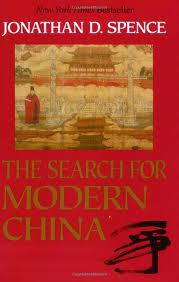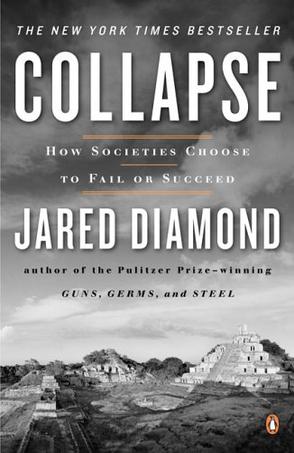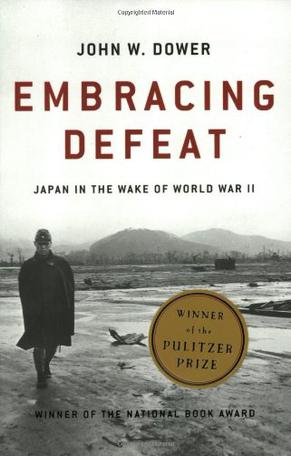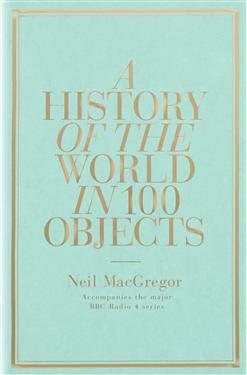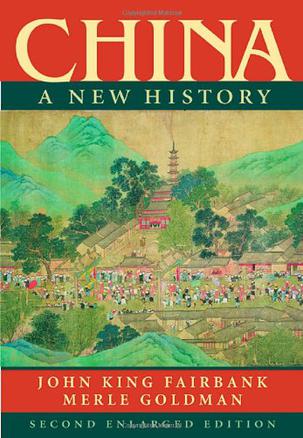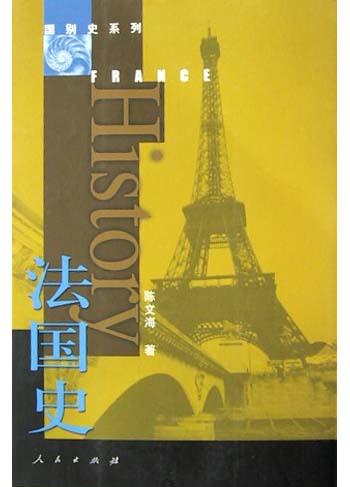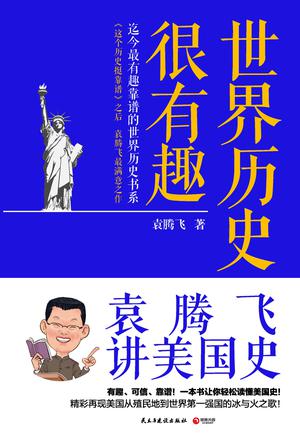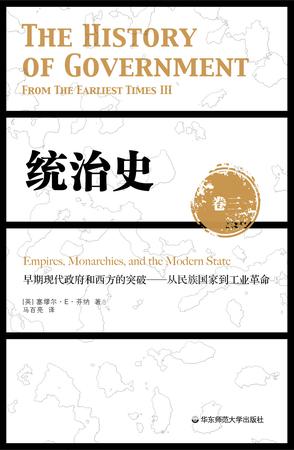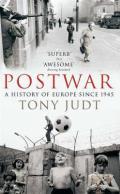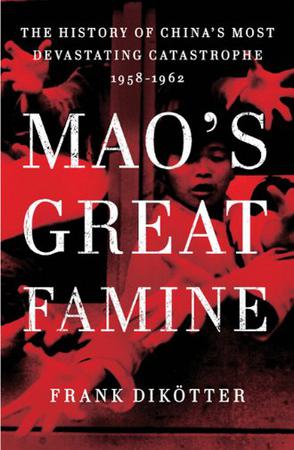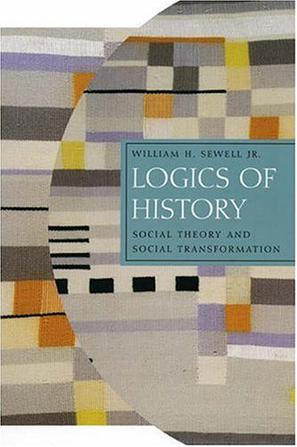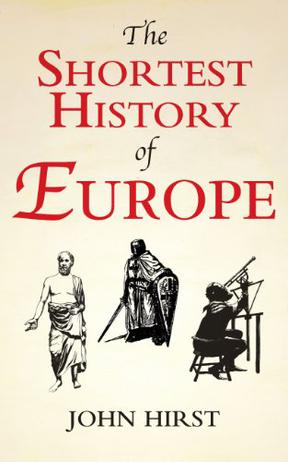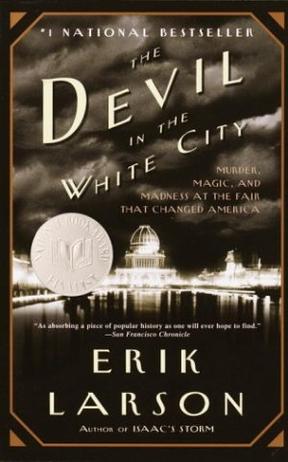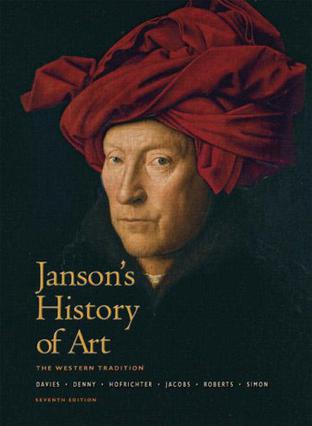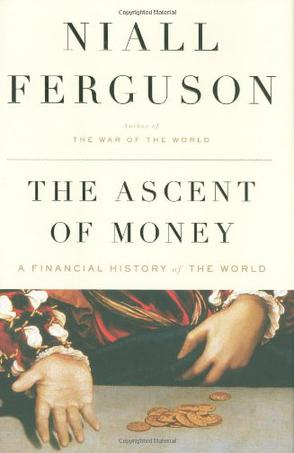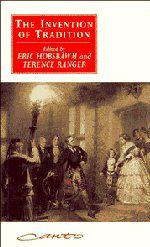欢迎来到相识电子书!
标签:History
-
Collapse
Book Description In this fascinating book, Diamond seeks to understand the fates of past societies that collapsed for ecological reasons, combining the most important policy debate of this generation with the romance and mystery of lost worlds. Amazon.com Jared Diamond's Collapse: How Societies Choose to Fail or Succeed is the glass-half-empty follow-up to his Pulitzer Prize-winning Guns, Germs, and Steel. While Guns, Germs, and Steel explained the geographic and environmental reasons why some human populations have flourished, Collapse uses the same factors to examine why ancient societies, including the Anasazi of the American Southwest and the Viking colonies of Greenland, as well as modern ones such as Rwanda, have fallen apart. Not every collapse has an environmental origin, but an eco-meltdown is often the main catalyst, he argues, particularly when combined with society's response to (or disregard for) the coming disaster. Still, right from the outset of Collapse, the author makes clear that this is not a mere environmentalist's diatribe. He begins by setting the book's main question in the small communities of present-day Montana as they face a decline in living standards and a depletion of natural resources. Once-vital mines now leak toxins into the soil, while prion diseases infect some deer and elk and older hydroelectric dams have become decrepit. On all these issues, and particularly with the hot-button topic of logging and wildfires, Diamond writes with equanimity. Because he's addressing such significant issues within a vast span of time, Diamond can occasionally speak too briefly and assume too much, and at times his shorthand remarks may cause careful readers to raise an eyebrow. But in general, Diamond provides fine and well-reasoned historical examples, making the case that many times, economic and environmental concerns are one and the same. With Collapse, Diamond hopes to jog our collective memory to keep us from falling for false analogies or forgetting prior experiences, and thereby save us from potential devastations to come. While it might seem a stretch to use medieval Greenland and the Maya to convince a skeptic about the seriousness of global warming, it's exactly this type of cross-referencing that makes Collapse so compelling. --Jennifer Buckendorff From Publishers Weekly In his Pulitzer Prize–winning bestseller Guns, Germs, and Steel, geographer Diamond laid out a grand view of the organic roots of human civilizations in flora, fauna, climate and geology. That vision takes on apocalyptic overtones in this fascinating comparative study of societies that have, sometimes fatally, undermined their own ecological foundations. Diamond examines storied examples of human economic and social collapse, and even extinction, including Easter Island, classical Mayan civilization and the Greenland Norse. He explores patterns of population growth, overfarming, overgrazing and overhunting, often abetted by drought, cold, rigid social mores and warfare, that lead inexorably to vicious circles of deforestation, erosion and starvation prompted by the disappearance of plant and animal food sources. Extending his treatment to contemporary environmental trouble spots, from Montana to China to Australia, he finds today's global, technologically advanced civilization very far from solving the problems that plagued primitive, isolated communities in the remote past. At times Diamond comes close to a counsel of despair when contemplating the environmental havoc engulfing our rapidly industrializing planet, but he holds out hope at examples of sustainability from highland New Guinea's age-old but highly diverse and efficient agriculture to Japan's rigorous program of forest protection and, less convincingly, in recent green consumerism initiatives. Diamond is a brilliant expositor of everything from anthropology to zoology, providing a lucid background of scientific lore to support a stimulating, incisive historical account of these many declines and falls. Readers will find his book an enthralling, and disturbing, reminder of the indissoluble links that bind humans to nature. Photos. From Booklist Defining collapse as "extreme decline," the Pulitzer Prize-winning author of Guns, Germs, and Steel (1997), which posed questions about Western civilization's domination of much of the world, now examines the reverse side of that coin. Diamond ponders reasons why certain civilizations have collapsed. With an eye on the implications for the present and future, he bases his analysis on his newly phrased version of an old maxim about what history teaches: "The past offers us a rich database from which we can learn." Drawing examples from this database, from Polynesian culture on Easter Island to the Viking outposts in Greenland to the Mayan civilization in Central America, the author finds "the fundamental pattern of catastrophe" that is apparent in these populations that once flourished and then collapsed. The template he holds up is a construct based on five factors, including environmental damage, climate change, and hostile neighbors. In addition, Diamond casts his critical but acute and inclusive gaze on the issue of why civilizations fail to see collapse coming. A thought-provoking book containing not a single page of dense prose. Expect demand from civic- and history-minded readers. Brad Hooper From School Library Journal Adult/High School–This powerful call to action should be read by all high school students. Diamond eloquently and persuasively describes the environmental and social problems that led to the collapse of previous civilizations and threaten us today. The book's organization makes researching particular regions or types of damage accessible. Unfamiliar words are defined, and mention of a place or issue that has been described in greater detail elsewhere includes relevant page numbers. Students may become impatient with the folksy Montana fishing stories in part one, but once the fascinating account of the vanished civilizations begins, readers are taken on an extraordinary journey. Using the Mayan empire, Easter Island, the Anasazi, and other examples, the author shows how a combination of environmental factors such as habitat destruction, the loss of biodiversity, and degradation of the soil caused complex, flourishing societies to suddenly disintegrate. Modern societies are divided into those that have begun to collapse, such as Rwanda and Haiti; those whose conservation policies have helped to avert disaster, such as Iceland and Japan; and those currently dealing with massive problems, such as Australia and China. Diamond is a cautious optimist. Some of his most compelling stories show how two groups of people sharing the same land, such as the Norse and Inuit in Greenland, can end up in completely different situations depending on how they address their problems. The solutions discussed are of vital importance: how societies respond to environmental degradation will determine how teens will live their adult lives. As Diamond points out, in a collapsing civilization, being rich just means being the last to starve. Black-and-white photos are included. –Kathy Tewell, Fairfax County Public Library, VA Book Dimension length: (cm)21.7 width:(cm)14 -
Embracing Defeat
Drawing on a vast range of Japanese sources and illustrated with dozens of astonishing documentary photographs, Embracing Defeat is the fullest and most important history of the more than six years of American occupation, which affected every level of Japanese society, often in ways neither side could anticipate. Dower, whom Stephen E. Ambrose has called "America's foremost historian of the Second World War in the Pacific," gives us the rich and turbulent interplay between West and East, the victor and the vanquished, in a way never before attempted, from top-level manipulations concerning the fate of Emperor Hirohito to the hopes and fears of men and women in every walk of life. Already regarded as the benchmark in its field, Embracing Defeat is a work of colossal scholarship and history of the very first order. Winner of the Pulitzer Prize, the 1999 National Book Award for Nonfiction, finalist for the Lionel Gelber Prize and the Kiriyama Pacific Rim Book Prize, Embracing Defeat is John W. Dower's brilliant examination of Japan in the immediate, shattering aftermath of World War II. -
A History of the World in 100 Objects
'In this book, we travel back in time and across the globe, to see how we humans have shaped our world and been shaped by it over the past two million years. The story is told exclusively through the things that humans have made - all sorts of things, carefully designed and then either admired and preserved or used, broken and thrown away. I've chosen just a hundred objects from different points on our journey - from a cooking pot to a golden galleon, from a Stone Age tool to a credit card, and each object comes from the collection of the British Museum' - [from the introduction]. This book takes a dramatically original approach to the history of humanity, using objects which previous civilisations have left behind them, often accidentally, as prisms through which we can explore past worlds and the lives of the men and women who lived in them. The book's range is enormous. It begins with one of the earliest surviving objects made by human hands, a chopping tool from the Olduvai gorge in Africa, and ends with an object from the 21st century which represents the world we live in today. Neil MacGregor's aim is not simply to describe these remarkable things, but to show us their significance - how a stone pillar tells us about a great Indian emperor preaching tolerance to his people, how Spanish pieces of eight tell us about the beginning of a global currency or how an early Victorian tea-set tells us about the impact of empire. Each chapter immerses the reader in a past civilisation accompanied by an exceptionally well-informed guide. Seen through this lens, history is a kaleidoscope - shifting, interconnected, constantly surprising, and shaping our world today in ways that most of us have never imagined. An intellectual and visual feast, it is one of the most engrossing and unusual history books published in years. -
自由的历程
在这个高度岽尚个人自由的国度,甚至法律都不禁止焚烧国旗,但是美国民众美国意识之强烈,令世人吃惊。一个建国仅仅两百多年,几乎完全是由移民构成的国家,何以有如此巨大的凝聚力?那么多逃离自己母国来到这片新大陆的难民,何以如此坚定地爱着这个国家?这个年轻的国家到底能满足他们什么呢?在这个把个人权益放在首位的国家,爱美国必然是有条件的,那是什么样的条件?在美国这个商业的契约社会,国家与个人之间到底有着什么样的交易与契约?这个国家的建国之本、立国之基是什么?这个国家的国民与政府有什么样的性格?他们的社会有什么样的特点?这个国家崇尚什么,忌讳什么?这个国家的成就与失败、贡献与劣迹是什么? 《自由的历程:美利坚图史》是帮助读者了解美国历史、美国核心价值观的读本,这本书的魅力在于:无论是大学教授还是企业员工,无论是家长还是学生,无论是专家还是普通读者,都能看得津津有味,不忍释手。读后所得,跟任何一本同类读物相比,只多不少。 -
法国史
一个广纳百川、独具特色的浪漫民族,一个曾经谋求欧洲霸权而最终花落流水的激情国度,一个曾经让革命者魂牵梦绕的民主自由的圣地,一个让文化人醉心不已的新思想、新潮流的摇篮。这就是法兰西,一个让人不能不想、不能不读的法兰西。 -
世界历史很有趣:袁腾飞讲美国史
《世界历史很有趣》系列,是中国通俗讲史界代表人物袁腾飞倾力打造的世界历史书系。袁sir以独具特色的生动有趣的讲史风格,一本书讲一个国家,选取一个国家历史上最重要、最有趣、最有味的故事,知识性与趣味性完美结合,成为广大读者了解世界历史、增长知识的首选书系。 《世界历史很有趣:袁腾飞讲美国史》为系列最重磅之作,也是袁腾飞最满意之作!资料新颖,权威可信,图文并茂,有趣、敢说、靠谱,一本书让你轻松读懂美国史,精彩再现美国从殖民地到世界第一强国的冰与火之歌! 袁sir经典语录: ●美国宪法一直到今天依然有效,增加了23条修正案,可见美国政治的超稳定性。开国元勋们把规则全都制定好了,后人按照这个规则玩儿就行了。宪法是国家的根本大法,不能老改,老改就证明这个国家政局混乱。 ●美元上的头像大都是历届有威望的总统,百元大钞上的头像不是总统,而是著名科学家、金融家、政治家富兰克林,他虽然没有当过美国总统,但是他最值钱。美国人为什么要把华盛顿印在1美元上,林肯印在5美元上?因为常用,100美元不常用,一块钱天天使。 ●美国一个县法院都可以给总统下传票,总统可以不来,但是你得派律师到庭。如果总统说一个破县法院传我?甭理他!那你麻烦就大了,藐视法庭罪过不小。权力肯定会带来腐败,绝对的权力带来的是绝对的腐败。 ●林肯总统提出来,什么样的政府能够为人民所拥护?必须是民有、民治、民享的政府,干什么事都得经过老百姓的同意。孙中山先生据此提出“三民主义”,成为推翻帝制,建立共和的指导思想。 ●看美国大片《珍珠港》时,有一个镜头我印象特深。日本飞行员要进行轰炸了,发现地面上有小孩在玩,就向小孩儿挥手,你躲开,我要扔炸弹了。美国人拍的战争电影,绝对不会丑化敌人,敌人也是武士、也是骑士,我打败了这样的人更显得我厉害。 ●第二次世界大战的时候,美国总统罗斯福强调人的四大基本自由:言论自由、信仰自由、免予饥饿的自由、免予恐惧的自由。一个公民不惧怕另一个公民,你不会因为骂了总统而怎么样。 -
统治史(卷三):早期现代政府和西方的突破——从民族国家到工业革命
20世纪西方政治学领军人物芬纳的传世巨著,芝加哥大学教授赵鼎新亲为中译本作序,甘阳、张维为、刘军宁、汪晖倾力推荐! 甘阳:一部《资治通鉴》式的政治史。 张维为:本书揭示了代议制民主成为当代政治神话的偶然性,也指出中国传统政治文明对人类社会的 巨大贡献。 汪晖:鉴前世政体之兴衰,考当今统治之得失。 刘军宁:《统治史》是亚里士多德的《政治学》以来我首次读到如此详细研究古今中外政体的史书。 赵鼎新:《经济学家》杂志说如果政治学有诺贝尔奖的话,芬纳的三部曲就肯定会赢得此殊荣。我个人认为这一评价仍然低估了芬纳的卓越工作。 作为西方政治学领军人物塞缪尔•E•芬纳的三卷本《统治史》是20世纪西方政治学的传世巨著。《统治史》的主要关注点是世界历史中政府形态的发展,以各个国家的政府形态、统治方式和国家社会关系为核心,大致依照时间顺序,先把我们带入世界文明中最为古老的苏美尔城邦,述及萨尔贡、埃及、亚述、犹太、波斯、希腊、中国、罗马、印度、拜占庭、阿拉伯、中世纪欧洲、日本、奥斯曼帝国等地区和国家的政治史,然后把焦点转入文艺复兴和新教运动后的欧洲各国和美洲殖民地政治制度的突破性发展,最后,集中讨论影响当代世界的三大革命(美国革命、法国革命及工业革命)以及这些革命给世界政治、政府形态和国家社会关系所带来的前所未有的变化。 《统治史》第三卷《早期现代政府和西方的突破——从民族国家到工业革命》以日本德川时期为开端,接着评述中国清朝、奥斯曼帝国和莫卧儿帝国,以及英国、法国和西班牙的民族国家和代议制的兴起,随后考察文艺复兴和新教运动后欧洲各国和美洲殖民地政治制度的突破性发展,最后对三大革命(美国革命、法国革命、工业革命)影响下的“现代国家路径”进行了概要性评述。 -
Postwar
A magnificent history of postwar Europe, East and West, by arguably the subject's most esteemed historian. -
Mao's Great Famine
"Between 1958 and 1962, China descended into hell. Mao Zedong threw his country into a frenzy with the Great Leap Forward, an attempt to catch up to and overtake Britain in less than 15 years The experiment ended in the greatest catastrophe the country had ever known, destroying tens of millions of lives." So opens Frank Dikötter's riveting, magnificently detailed chronicle of an era in Chinese history much speculated about but never before fully documented because access to Communist Party archives has long been restricted to all but the most trusted historians. A new archive law has opened up thousands of central and provincial documents that "fundamentally change the way one can study the Maoist era." Dikötter makes clear, as nobody has before, that far from being the program that would lift the country among the world's superpowers and prove the power of Communism, as Mao imagined, the Great Leap Forward transformed the country in the other direction. It became the site not only of "one of the most deadly mass killings of human history,"--at least 45 million people were worked, starved, or beaten to death--but also of "the greatest demolition of real estate in human history," as up to one-third of all housing was turned into rubble). The experiment was a catastrophe for the natural world as well, as the land was savaged in the maniacal pursuit of steel and other industrial accomplishments. In a powerful meshing of exhaustive research in Chinese archives and narrative drive, Dikötter for the first time links up what happened in the corridors of power-the vicious backstabbing and bullying tactics that took place among party leaders-with the everyday experiences of ordinary people, giving voice to the dead and disenfranchised. His magisterial account recasts the history of the People's Republic of China. -
Logics of History
While social scientists and historians have been exchanging ideas for a long time, they have never developed a proper dialogue about social theory. William H. Sewell Jr. observes that on questions of theory the communication has been mostly one way: from social science to history. Logics of History argues that both history and the social sciences have something crucial to offer each other. While historians do not think of themeselves as theorists, they know something social scientists do not: how to think about the temporalities of social life. On the other hand, while social scientists' treatments of temporality are usually clumsy, their theoretical sophistication and penchant for structural accounts of social life could offer much to historians. Renowned for his work at the crossroads of history, sociology, political science, and anthropology, Sewell argues that only by combining a more sophisticated understanding of historical time with a concern for larger theoretical questions can a satisfying social theory emerge. In Logics of History, he reveals the shape such an engagement could take, some of the topics it could illuminate, and how it might affect both sides of the disciplinary divide. -
The Shortest History of Europe
This text offers a rapid overview of European civilisation, describing its birth from an unlikely mixture of three elements - classical learning, Christianity & German warrior culture. Over the centuries, this unstable blend produced distinctive characters, & its coming apart provided the dynamic of European history in modern times. -
The Shortest History of Europe
This text offers a rapid overview of European civilisation, describing its birth from an unlikely mixture of three elements - classical learning, Christianity & German warrior culture. Over the centuries, this unstable blend produced distinctive characters, & its coming apart provided the dynamic of European history in modern times. -
反思史学与史学反思
◆ 著名历史人类学家王明珂的重磅新作,是《华夏边缘》《羌在汉藏之间》《英雄祖先与弟兄民族》《游牧者的抉择》等著作的知识论基础。 ◆ 一部醒世之作:我们看到、听到、读到、想到、学到的东西,都是某种本相的表征,而对这些表征的错误解读,会让我们带有偏见,从而做出错误的判断。换 言之,是人(组织)就有偏见,没有理由过分自信。要找到解决现实问题的有效办法,就必须认识并尊重本相。 ◆ 一套极具操作性的分析方法:通过循序渐进、启发式的引导,帮助读者认识历史及现实的表相与本相。 《反思史学与史学反思》是著名历史人类学家王明珂的新作,其内容是《华夏边缘》《羌在汉藏之间》《英雄祖先与弟兄民族》《游牧者的抉择》等著作的知识论基础。作者通过人类生态、本相/表相、认同/记忆、文本/情境等概念,提出一种由表相(文本、图像、电影、社会事件等等)认识社会现实本相的分析法。这是一种结合多种社会科学的历史学研究,作者称之为 “反思史学”。同时也是作者作为历史学家对史学的反思。作者希望读者/研究者能因此练就如孙悟空的火眼金睛,能看透被典范知识蒙敝的真实世界及其历史变化过程,对外在世界有真实体认,以及反思与反应。 -
The Devil in the White City
Bringing Chicago circa 1893 to vivid life, Erik Larson's spellbinding bestseller intertwines the true tale of two men--the brilliant architect behind the legendary 1893 World's Fair, striving to secure America’s place in the world; and the cunning serial killer who used the fair to lure his victims to their death. Combining meticulous research with nail-biting storytelling, Erik Larson has crafted a narrative with all the wonder of newly discovered history and the thrills of the best fiction. -
The Ascent of Money
在线阅读本书 Niall Ferguson follows the money to tell the human story behind the evolution of finance, from its origins in ancient Mesopotamia to the latest upheavals on what he calls Planet Finance . Bread, cash, dosh, dough, loot, lucre, moolah, readies, the wherewithal: Call it what you like, it matters. To Christians, love of it is the root of all evil. To generals, its the sinews of war. To revolutionaries, its the chains of labor. But in The Ascent of Money , Niall Ferguson shows that finance is in fact the foundation of human progress. Whats more, he reveals financial history as the essential backstory behind all history. Through Fergusons expert lens familiar historical landmarks appear in a new and sharper financial focus. Suddenly, the civilization of the Renaissance looks very different: a boom in the market for art and architecture made possible when Italian bankers adopted Arabic mathematics. The rise of the Dutch republic is reinterpreted as the triumph of the worlds first modern bond market over insolvent Habsburg absolutism. And the origins of the French Revolution are traced back to a stock market bubble caused by a convicted Scot murderer. With the clarity and verve for which he is known, Ferguson elucidates key financial institutions and concepts by showing where they came from. What is money? What do banks do? Whats the difference between a stock and a bond? Why buy insurance or real estate? And what exactly does a hedge fund do? This is history for the present. Ferguson travels to post-Katrina New Orleans to ask why the free market cant provide adequate protection against catastrophe. He delves into the origins of the subprime mortgage crisis. Perhaps most important, The Ascent of Money documents how a new financial revolution is propelling the worlds biggest countries, India and China, from poverty to wealth in the space of a single generationan economic transformation unprecedented in human history. Yet the central lesson of the financial history is that sooner or later every bubble burstssooner or later the bearish sellers outnumber the bullish buyers, sooner or later greed flips into fear. And thats why, whether youre scraping by or rolling in it, theres never been a better time to understand the ascent of money. -
The Invention of Tradition
Many of the traditions which we think of as very ancient in their origins were not in fact sanctioned by long usage over the centuries, but were invented comparatively recently. This book explores examples of this process of invention - the creation of Welsh and Scottish ‘national culture’; the elaboration of British royal rituals in the nineteenth and twentieth centuries; the origins of imperial rituals in British India and Africa; and the attempts by radical movements to develop counter-traditions of their own. It addresses the complex interaction of past and present, bringing together historians and anthropologists in a fascinating study of ritual and symbolism which poses new questions for the understanding of our history.
热门标签
下载排行榜
- 1 梦的解析:最佳译本
- 2 李鸿章全传
- 3 淡定的智慧
- 4 心理操控术
- 5 哈佛口才课
- 6 俗世奇人
- 7 日瓦戈医生
- 8 笑死你的逻辑学
- 9 历史老师没教过的历史
- 10 1分钟和陌生人成为朋友

